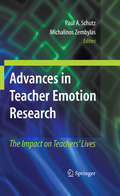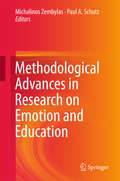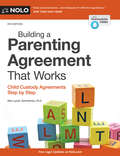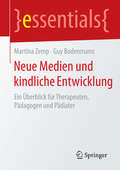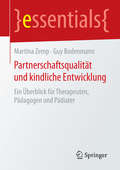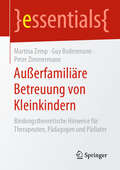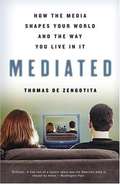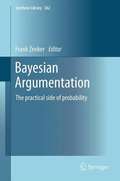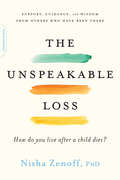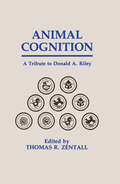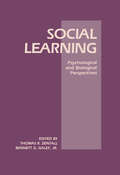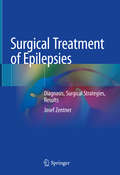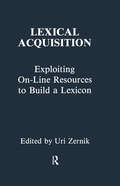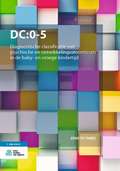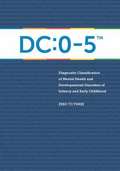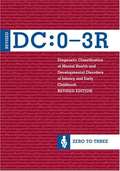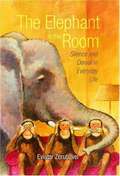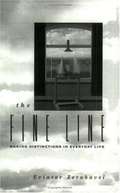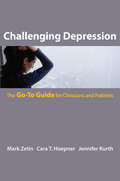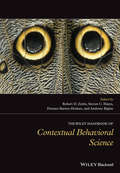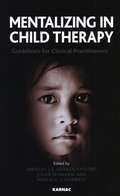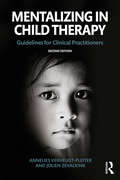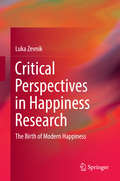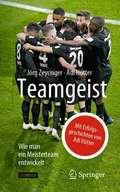- Table View
- List View
Advances in Teacher Emotion Research: The Impact on Teachers' Lives
by Michalinos Zembylas Paul A. SchutzSome reports estimate that nearly 50% of teachers entering the profession leave within the first five years (Alliance for Excellent Education 2004; Ingersoll, 2003; Quality Counts 2000). One explanation of why teachers leave the profession so early in their career might be related to the emotional nature of the teaching profession. For example, teaching is an occupation that involves considerable emotional labor. Emotional labor involves the effort, planning, and control teachers need to express organizationally desired emotions during interpersonal transactions. As such, emotional labor has been associated with job dissatisfaction, health symptoms and emotional exhaustion, which are key components of burnout and related to teachers who drop out of the profession. Research into emotional labor in teaching and other aspects of teachers' emotions is becoming increasingly important not only because of the growing number of teachers leaving the profession, but also because unpleasant classroom emotions have considerable implications for student learning, school climate and the quality of education in general. Using a variety of different methodological and theoretical approaches, the authors in this edited volume, Advances in Teacher Emotion Research: The Impact on Teachers' Lives, provide a systematic overview that enriches our understanding of the role of emotions in teachers' professional lives and work. More specifically, the authors discuss inquiry related to teachers' emotions in educational reform, teacher identity, student involvement, race/class/gender issues, school administration and inspection, emotional labor, teacher burnout and several other related issues. This volume, then, represents the accumulation of different epistemological and theoretical positions related to inquiry on teachers' emotions, acknowledging that emotions are core components of teachers' lives. Advances in Teacher Emotion Research takes an eclectic look at teacher emotions, presenting current research from diverse perspectives, thereby making this volume a significant contribution to the field.
Methodological Advances in Research on Emotion and Education
by Michalinos Zembylas Paul A. SchutzThis volume presents different conceptual and theoreticalframeworks as well as research methods that have helped educational researchersto study emotions. It includes innovative approaches that push themethodological boundaries that have served educational researchers until nowand proposes new ways of researching emotions in educational contexts. In particular,this edited volume provides a historical frame for studying emotions. Itconnects theoretical/epistemological views with choice of research methods and describes specificmethods helpful in doing research on emotions as they are grounded in differenttheoretical and disciplinary traditions such as psychology, philosophy,sociology, history, political science, cultural studies, and feminist studies. Finally, it appreciates the contextual and international dimensions of studyingemotions in education and contributes to ongoing debates about the implicationsof our methodological choices for understanding emotion in education. Thiscombination of variety, timeliness, potential for transformation of the field,and uniqueness make this a very valuable resource to introduce new scholars inthe field alongside established scholars.
Building a Parenting Agreement That Works: Child Custody Agreements Step by Step
by Mimi Lyster ZemmelmanA divorce or separation can be a very trying time, especially when children are involved. The step-by-step approach in Building a Parenting Agreement That Works provides information on how to minimize conflict and solve important custody issues, such as living arrangements, education, holidays, transportation, and much more. A professional mediator, author Mimi Lyster Zemmelman, sets out 40 issues separating parents typically face and presents all the options to resolving them. The book walks you through all the factors you must consider, including: medical care education and religious training living arrangements and visitation money issues dealing with changes in an existing agreement, and working with professionals. This updated edition includes checklists and worksheets to help you complete the included fill-in-the-blank custody agreement and provides the current custody laws of your state.
Neue Medien und kindliche Entwicklung: Ein Überblick für Therapeuten, Pädagogen und Pädiater (essentials)
by Martina Zemp Guy BodenmannDieses Essential zeigt, welche Konsequenzen die Nutzung von Fernseher, Computer und Internet für Kinder und Jugendliche hat - und was Fachleute Eltern raten können. Aus wissenschaftlicher Perspektive wird deutlich, dass die Nutzung von gewaltbetonten Medien ein Prädiktor für aggressives Verhalten bei Heranwachsenden ist, neuen Medien ein Suchtpotenzial innewohnt und exzessive Mediennutzung den kindlichen Schulleistungen abträglich sein kann. Entscheidend sind jedoch die Häufigkeit der Nutzung und der Medieninhalt. Vor diesem Hintergrund stehen Eltern in der Pflicht, klare Strukturen bezüglich Form, Inhalt und Dauer der Mediennutzung ihrer Kinder durchzusetzen.
Partnerschaftsqualität und kindliche Entwicklung: Ein Überblick für Therapeuten, Pädagogen und Pädiater (essentials)
by Martina Zemp Guy BodenmannInternationale Befunde haben konsistent dargelegt, dass destruktive Paarkonflikte und Scheidungen zu den wichtigsten Risikofaktoren für eine ungünstige kindliche Entwicklung gehören. Für Kinder sind Störungen in der Partnerschaft der Eltern in hohem Maße bedrohlich und gehen im Falle einer Trennung der Eltern mit dem schmerzvollen Bruch des bisherigen Lebensentwurfs einher. Dies bedeutet in aller Regel ein hoch destabilisierendes Ereignis, welches von Kindern vielgestaltige Anpassungsleistungen abverlangt. Ermutigenderweise hat die gegenwärtige Paar- und Familienforschung Bedingungen identifiziert, wie Paarkonflikte und Scheidungen möglichst konstruktiv verlaufen - um der Partnerschaft und des Kindeswohls willen.
Außerfamiliäre Betreuung von Kleinkindern: Bindungstheoretische Hinweise für Therapeuten, Pädagogen und Pädiater (essentials)
by Martina Zemp Guy Bodenmann Peter ZimmermannDieses essential beleuchtet den aktuellen Kenntnisstand zur Inanspruchnahme öffentlicher Kindertagesbetreuung aus bindungstheoretischer Sicht. Es gibt Fachpersonen, die mit Familien arbeiten, einen Überblick und praktische Hinweise zum Thema. Die wissenschaftlichen Befunde zur Frage, ob die Betreuung in Kinderkrippen/Kitas negative Auswirkungen auf die kindliche Entwicklung hätte, sind inkonsistent. Die Folgen hängen von diversen Faktoren ab, u.a. von der Quantität und Qualität der außerfamiliären Betreuung und insbesondere von der Fürsorge und Feinfühligkeit der Eltern zu Hause. Bei guter Fürsorge kann die Eltern-Kind-Bindung aufrechterhalten werden. Dennoch ist die familienexterne Betreuung von Kleinkindern bindungstheoretisch nicht immer unproblematisch. Die Grundannahmen der Bindungstheorie bleiben in diesem Diskurs unumstritten und weiterhin hoch relevant.
Mediated: How The Media Shapes Your World And The Way You Live In It
by Thomas De ZengotitaA provocative, eye-opening look at the way media shapes every aspect of our lives. Just when you thought there was nothing new to say about the media, along comes a book that transcends the conventional wisdom with an original vision, one that unites our most intimate personal concerns with far-reaching historical trends in an accessible way. From Princess Diana's funeral to the prospect of mass terror, from oral sex in the Oval Office to cowboy politics in distant lands, from high school cliques to marital therapy, from hip-hop nation to climbing Mt. Everest, from blogs to reality TV to the Weather Channel, Mediated takes us on a tour of every department of our media-saturated society. And at every turn we see ourselves as we are, immersed in options, surrounded by representations, driven to unprecedented levels of self-consciousness-and obliged by these circumstances to transform our very lives into performances. Sophisticated, satirical, sometimes searing, ultimately forgiving, Mediated tackles everything we take for granted and reintroduces us to it all as if for the first time. You'll laugh, you'll squirm, you'll agree, you'll object-but you'll find more Aha! moments packed into fewer pages than you've ever come across before.
Bayesian Argumentation: The practical side of probability (Synthese Library #362)
by Frank ZenkerRelevant to, and drawing from, a range of disciplines, the chapters in this collection show the diversity, and applicability, of research in Bayesian argumentation. Together, they form a challenge to philosophers versed in both the use and criticism of Bayesian models who have largely overlooked their potential in argumentation. Selected from contributions to a multidisciplinary workshop on the topic held in Sweden in 2010, the authors count linguists and social psychologists among their number, in addition to philosophers. They analyze material that includes real-life court cases, experimental research results, and the insights gained from computer models. The volume provides, for the first time, a formal measure of subjective argument strength and argument force, robust enough to allow advocates of opposing sides of an argument to agree on the relative strengths of their supporting reasoning. With papers from leading figures such as Michael Oaksford and Ulrike Hahn, the book comprises recent research conducted at the frontiers of Bayesian argumentation and provides a multitude of examples in which these formal tools can be applied to informal argument. It signals new and impending developments in philosophy, which has seen Bayesian models deployed in formal epistemology and philosophy of science, but has yet to explore the full potential of Bayesian models as a framework in argumentation. In doing so, this revealing anthology looks destined to become a standard teaching text in years to come.
The Unspeakable Loss: How Do You Live After a Child Dies?
by Nisha ZenoffA guide to hope and healing after the death of a child, from a grief counselor and psychotherapist who has been there.Nisha Zenoff lost her son in a tragic accident when he was just seventeen years old. Now, with decades of experience as a grief counselor and psychotherapist, she offers support and guidance from her own journey and from others who have experienced the death of a child. The Unspeakable Loss helps those who mourn to face the urgent questions that accompany loss: "Will my tears ever stop?" "Who am I now without my child?" "How can I help my other children cope?" "I lost my only child, how do I live?" "Will my marriage survive?" "Will life ever feel worth living again?"No matter where you are in your grieving process, The Unspeakable Loss provides a space to mourn in your own way, and helps you understand how the death of a child affects siblings, other family members and friends, recognizing that we each grieve differently. And while there is no one prescription for healing, Zenoff provides tools to practice the important aspects of grieving that are easily forgotten--self-compassion and self-care.The Unspeakable Loss doesn't flinch from the reality or pain caused by the death of a child, yet ultimately it is a book about the choice to embrace life, love, and joy again. As Zenoff writes in the Preface: "Our relationships with our children do not end with their deaths. Our relationships change, they're transformed, but our children will always be with us."
Animal Cognition: A Tribute To Donald A. Riley (Comparative Cognition and Neuroscience Series)
by Thomas R. ZentallPrepared as a tribute to Donald A. Riley, the essays that appear here are representative of a research area that has loosely been classified as animal cognition -- a categorization that reflects a functionalist philosophy that was prevalent in Riley's laboratory and that many of his students absorbed. According to this philosophy, it is acceptable to hypothesize that an animal might engage in complex processing of information, as long as one can operationalize evidence for such a process and the hypothesis can be presented in the context of testable predictions that can differentiate it from other mechanisms. The contributions to this volume represent the three most important areas of research in animal cognition -- stimulus representation, memory processes, and perceptual processes -- although current research has considerably blurred these distinctions.
Social Learning: Psychological and Biological Perspectives (Comparative Cognition and Neuroscience Series)
by Thomas R. Zentall Bennett G. GalefFirst published in 1988. During the past decade there has been a marked increase in the number of North American and European laboratories engaged in the study of social learning. As a consequence, evidence is rapidly accumulating that in animals, as in humans, social interaction plays an important role in facilitating development of adaptive patterns of behavior. Experimenters are isolated both by the phenomena they study and by the species with which they work. The process of creating a coherent field out of the diversity of current social learning research is likely to be both long and difficult. It the authors’ hope, that the present volume may prove a useful first step in bringing order to a diverse field.
Surgical Treatment of Epilepsies: Diagnosis, Surgical Strategies, Results
by Josef ZentnerThis book fills the gap between the increasing demand for epilepsy surgical experience and limited training facilities in this area. It comprehensively describes surgical techniques, including tricks and pitfalls, based on the author’s 30 years of experience, providing optimal and effective training for young neurosurgeons by avoiding learning by trial and error. Moreover, it also includes useful information for epileptologists and other professionals involved in the epilepsy surgical program to allow them to gain a better understanding of possibilities and limitations of epilepsy surgery.
Lexical Acquisition: Exploiting On-line Resources To Build A Lexicon
by Uri ZernikOn-line information -- and free text in particular -- has emerged as a major, yet unexploited, resource available in raw form. Available, but not accessible. The lexicon provides the major key for enabling accessibility to on-line text. The expert contributors to this book explore the range of possibilities for the generation of extensive lexicons. In so doing, they investigate the use of existing on-line dictionaries and thesauri, and explain how lexicons can be acquired from the corpus -- the text under investigation -- itself. Leading researchers in four related fields offer the latest investigations: computational linguists cover the natural language processing aspect; statisticians point out the issues involved in the use of massive data; experts discuss the limitations of current technology; and lexicographers share their experience in the design of the traditional dictionaries.
DC: Diagnostische classificatie van psychische en ontwikkelingsstoornissen in de baby- en vroege kindertijd
by ZERO TO THREEDit boek gaat over de classificatie van psychische en ontwikkelingsproblemen bij zeer jonge kinderen vanuit het perspectief van de vroege ontwikkeling en de (relationele) context waarin zij opgroeien. Het is een belangrijk hulpmiddel bij het effectief gebruiken van diagnostische criteria ten behoeve van diagnostiek en behandelplanning. Het richt zich op hulpverleners en onderzoekers in de geestelijke gezondheidszorg, artsen, verpleegkundigen en opvoedkundigen. DC:0-5, Diagnostische classificatie van psychische en ontwikkelingsstoornissen in de baby- en vroege kindertijd is een vertaling van de grondig gereviseerde versie van de eerdere DC:0-3 (1994) en DC:0-3R (2005), het eerste en enige ontwikkelingsgerichte systeem voor diagnostiek van psychische en ontwikkelingsstoornissen bij kinderen tot en met vijf jaar oud. Er zijn verschillende redenen waarom een specifiek classificatiesysteem voor de baby en vroege kindertijd nodig is. Ten eerste, zijn de DSM-5 criteria niet zonder meer toepasbaar tot en met de leeftijd van vijf jaar; ten tweede, is het perspectief van de vroege ontwikkeling en die van de context waarin het kind opgroeit leidend in de DC:0- 5. Dit perspectief komt onvoldoende naar voren in de DSM-5. De DC:0-5 legt tenslotte grote nadruk op culturele diversiteit en de relevantie ervan voor de diagnostiek en behandeling. De DC:0-5 is een op zichzelf staand classificatiesysteem, maar slaat tevens de brug naar de DSM-5 en ICD-10. Nieuw aan deze editie: Leeftijd is opgerekt naar vijf jaar;De criteria zijn aangepast zodat ze beter van toepassing zijn op nog jongere en iets oudere kinderen; De relevantie van verschillen in culturele normen en waarden in de beoordeling wordt sterk benadrukt en hiervoor zijn praktische richtlijnen opgesteld. Ook is een aantal nieuwe stoornissen toegevoegd zoals: Vroege atypische autisme spectrum stoornis; Hyperactiviteit van de peuterleeftijd; Stoornissen in zintuigelijke verwerking; Stoornis van ontregelde woede en agressie van de vroege kindertijd, als vervanging voor de bekende oppositionele-opstandige stoornis (ODD). Diagnostic Classification of Mental Health and Developmental Disorders of Infancy and Early Childhood is oorspronkelijk uitgegeven door ZERO TO THREE: National Center for Infants, Toddlers and Families (2016). De Nederlandse vertaling is verzorgd door kinderpsychiater Janne Visser.
Dc: Diagnostic Classification Of Mental Health And Developmental Disorders Of Infancy And Early Childhood
by Zero To Three Organization StaffDC:05 captures new findings relevant to diagnosis in young children and addresses unresolved issues in the field since DC:03R was published in 2005. DC:05 is designed to help mental health and other professionals: ¢¢ recognize mental health and developmental challenges in infants and young children, through 5 years old; ¢¢ understand that relationships and psychosocial stressors contribute to mental health and developmental disorders and incorporate contextual factors into the diagnostic process; ¢¢ use diagnostic criteria effectively for classification, case formulation, and intervention; and ¢¢ facilitate research on mental health disorders in infants and young children.
Diagnostic Classification of Mental Health and Developmental Disorders of Infancy and Early Childhood (Revised)
by Zero To Three StaffZERO TO THREE'S Diagnostic Classification of Mental Health and Developmental Disorders of Infancy and Early Childhood (DC:0-3), published in 1994, was designed to address the need for a systematic, developmentally based approach to the classification of mental health and developmental difficulties in the first 4 years of life.
The Elephant in the Room: Silence and Denial in Everyday Life
by Eviatar ZerubavelThe fable of the Emperor's New Clothes is a classic example of a conspiracy of silence, a situation where everyone refuses to acknowledge an obvious truth. But the denial of social realities--whether incest, alcoholism, corruption, or even genocide-is no fairy tale. In The Elephant in the Room, Eviatar Zerubavel sheds new light on the social and political underpinnings of silence and denial--the keeping of "open secrets." The author shows that conspiracies of silence exist at every level of society, ranging from small groups to large corporations, from personal friendships to politics. Zerubavel shows how such conspiracies evolve, illuminating the social pressures that cause people to deny what is right before their eyes. We see how each conspirator's denial is symbiotically complemented by the others', and we learn that silence is usually more intense when there are more people conspiring--and especially when there are significant power differences among them. He concludes by showing that the longer we ignore "elephants," the larger they loom in our minds, as each avoidance triggers an even greater spiral of denial. Drawing on examples from newspapers and comedy shows to novels, children's stories, and film, the book travels back and forth across different levels of social life, and from everyday moments to large-scale historical events. At its core, The Elephant in the Room helps us understand why we ignore truths that are known to all of us. "Eviatar Zerubavel gathers intriguing ideas for books the way ace foreign correspondents acquire great stories: by reflecting on the obvious, then probing as well as reporting."--The Philadelphia Inquirer
The Fine Line: Making Distinctions in Everyday Life
by Eviatar ZerubavelEviatar Zerubavel argues that most of the distinctions we make in our daily lives and in our culture are social constructs. He questions the notion that a clear line can be drawn to separate one time or object or concept from another, and presents witty and provocative counterexamples in defense of ambiguity and anomaly.
Challenging Depression: The Go-To Guide for Clinicians and Patients (Go-To Guides for Mental Health)
by Mark Zetin Jennifer Kurth Cara T. HoepnerHere, both therapist and client will learn the causes of depression, how to recognize and diagnose the different iterations of depression, the wide variety of psychotherapeutic and psychopharmacological treatment options available, and how to get the most out of those treatments. Zetin, Hoepner, and Kurth explain the causes of depression, how to recognize and diagnose the different iterations of depression, and the wide variety of psychotherapeutic and psychopharmacological treatment options available. Even more important, they show patients how to best work with their clinicians and clinicians how to best help their patients. The book is liberally sprinkled with case discussions, which demystify the treatment protocols and show the various ways that clients respond to treatment. In this book, medical professionals have a go-to desk reference for their questions about depression, and consumers have a friendly, accessible introduction to an otherwise intimidating disorder.
The Wiley Handbook of Contextual Behavioral Science (Wiley Clinical Psychology Handbooks)
by Robert D. Zettle Steven C. Hayes Dermot Barnes-Holmes Anthony BiglanThe Wiley Handbook of Contextual Behavioral Science describes the philosophical and empirical foundation of the contextual behavioral science movement; it explores the history and goals of CBS, explains its core analytic assumptions, and describes Relational Frame Theory as a research and practice program. This is the first thorough examination of the philosophy, basic science, applied science, and applications of Contextual Behavioral Science Brings together the philosophical and empirical contributions that CBS is making to practical efforts to improve human wellbeing Organized and written in such a way that it can be read in its entirety or on a section-by-section basis, allowing readers to choose how deeply they delve into CBS Extensive coverage of this wide ranging and complex area that encompasses both a rich basic experimental tradition and in-depth clinical application of that experimental knowledge Looks at the development of RFT, and its implications for alleviating human suffering
Mentalizing in Child Therapy: Guidelines for Clinical Practitioners
by Jolien Zevalkink M. G. L. Schmeets Annelies J. E. Verheugt-Pleiter J. E. Verheugt-PleiterPsychoanalysis has always been a developing field. For the treatment of children whose development has come to a standstill, mentalization-based child therapy-previously known as developmental therapy-is the latest branch on this tree of knowledge. A combination of data from psychoanalysis, infant research, attachment research and neurobiology was of decisive significance in reaching this point. It is becoming clear that neurobiological processes can very well be understood on the basis of psychoanalytic frameworks. These new insights into people's mental functioning also serve to foster collaboration, resulting in an integration of the more relationship-oriented treatments and the more competence-oriented treatments. This book will fill a growing need in mental health care for children and young people: integrated treatment, that is, using several different modes of treatment at the same time when the problems are complex. Treating complex problems in children with new psychoanalytic techniques is expected to add a new dimension to the practice of treatment, one that is interesting to cognitive behavioral therapists and psychoanalytically schooled psychotherapists alike. One step further, mental health care for children and adolescents may well draw benefits from the achievements of psychoanalysis, thus embedding psychoanalysis more firmly in the field of mental health care. To achieve this, not only will the various forms of psychotherapy need to be integrated, but the therapists as well.
Mentalizing in Child Therapy: Guidelines for Clinical Practitioners
by Jolien Zevalkink Annelies Verheugt-PleiterMentalizing in Child Therapy focuses on open-ended psychotherapy for children with complex mental health issues and attachment problems. It offers examples of personalized and integrated treatment that is "firm in structure yet flexible in its focus" (Peter Fonagy, foreword to first edition). The book is based on the systematic observation of the treatment of complex problems in children (4-12 years) using a mentalizing therapeutic stance and a range of techniques to enhance mentalizing abilities and trust in other people, incorporating aspects of the more relationship-oriented and competence-oriented treatments. In this updated edition, the authors have elaborated on the topic of attention regulation, having included Siegel’s concept of the ‘window of tolerance’. They’ve also written more on the mentalizing abilities of the therapist, the importance of providing structure at the beginning of the treatment, and the value of communication for developing epistemic trust. Featuring guidelines for clinical practitioners, this book is important for the clinical training of child psychotherapists, as well as for professional child psychiatrists, child psychologists and other therapists working with four to 12-year-old children experiencing significant developmental problems with mentalizing.
Critical Perspectives in Happiness Research: The Birth of Modern Happiness
by Luka ZevnikThis book presents an interdisciplinary exploration of the origins of happiness in the modern Western culture and makes the argument that happiness is not universal but is instead a culturally and historically specific experience, characteristic only to the Western world. It begins with an overview of the main research approaches to happiness and then studies the important but elusive theme in the context of culture and relations of power. The second part of the book analyses the social, religious, ethical and political processes that lead to the emergence of the experience of happiness, including consumer culture in contemporary societies. It presents an analysis of the medieval Christian experience which concludes that the modern experience of happiness only emerged in the 17th and 18th century, when the ideal of human existence increasingly started to be pursued in the present life. In its conclusion, this book explores the concept of modernization as the collective pursuit of happiness.
Science | Environment | Health: Towards a Science Pedagogy of Complex Living Systems (Contributions from Science Education Research #10)
by Albert Zeyer Regula Kyburz-GraberThis book provides a fascinating insight into the on-going process of self- reflection in the Science|Environment|Health (S|E|H) community. The basic vision of a new S|E|H pedagogy is to establish a transdisciplinary dialogue between the three educational fields of science education, environmental education, and health education. This approach finds growing interest among science educators. Since 2014, the ESERA special interest group S|E|H has united both experienced and junior researchers all over Europe in a burgeoning research community.This book presents a selection of results of these vibrant activities. Systems theory has turned out to be a stimulating theoretical framework for S|E|H. The limits of predictability in complex living systems result in structural uncertainty for decision-making, and they ask for emphasising and rethinking the role of pedagogical concepts like informed citizenship and scientific literacy. They challenge crude scientific determinism in environmental and health education, which all too often ends up with students’ eco- and health depression. Instead, S|E|H conceives coping with uncertainty in terms of an interplay between cognitive and affective factors. The horizon of the future remains always open. Hope must never die in a new S|E|H pedagogy.Chapter 3 is available open access under a Creative Commons Attribution 4.0 International License via link.springer.com.
Teamgeist: Wie man ein Meisterteam entwickelt
by Jörg Zeyringer Adi HütterAus verschiedenen Persönlichkeiten ein Meisterteam zu formen – das gehört zu den größten Herausforderungen für alle Menschen, die in Teams arbeiten, diese führen oder trainieren und motivieren. Lesen Sie in eindrucksvollem Storytelling, wie dies Teams aus dem Profifußball, der Wirtschaft und dem Gesundheitswesen schaffen. Exklusive Beispiele und wahre Begebenheiten von Adi Hütter und Jörg Zeyringer veranschaulichen Ihnen, welche Methoden und Techniken den Unterschied ausmachen. Begleiten Sie besondere Teams in ihrem Alltag, lesen Sie hochinteressante Exklusivgeschichten und erfahren Sie: was „Team“ tatsächlich bedeutet, weshalb ein gemeinsames, übergeordnetes Ziel im Sinne einer großen Idee für ein Team so wichtig ist, wie das menschliche Betriebssystem funktioniert,wie ein starker Zusammenhalt und eine besondere Mentalität in einem Team entstehen,welche Strategien Meisterteams für ihren Erfolg wählen und was sie tun, wenn es einmal nicht nach Wunsch läuft. Nutzen Sie die besonderen Erkenntnisse, die in diesem Buch spannend und anschaulich dargestellt werden, sowie den großen Teamgeist-Fragebogen.
